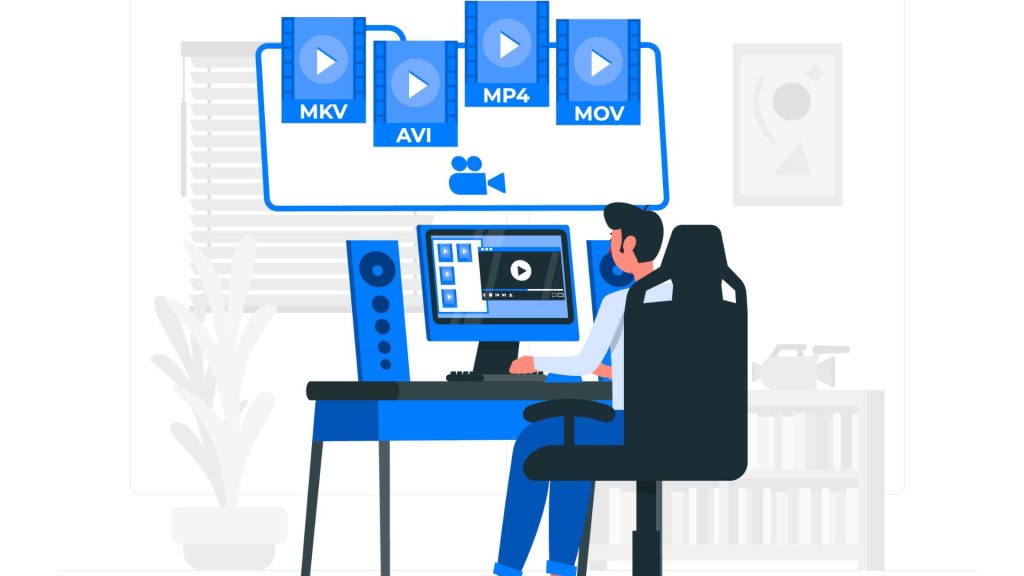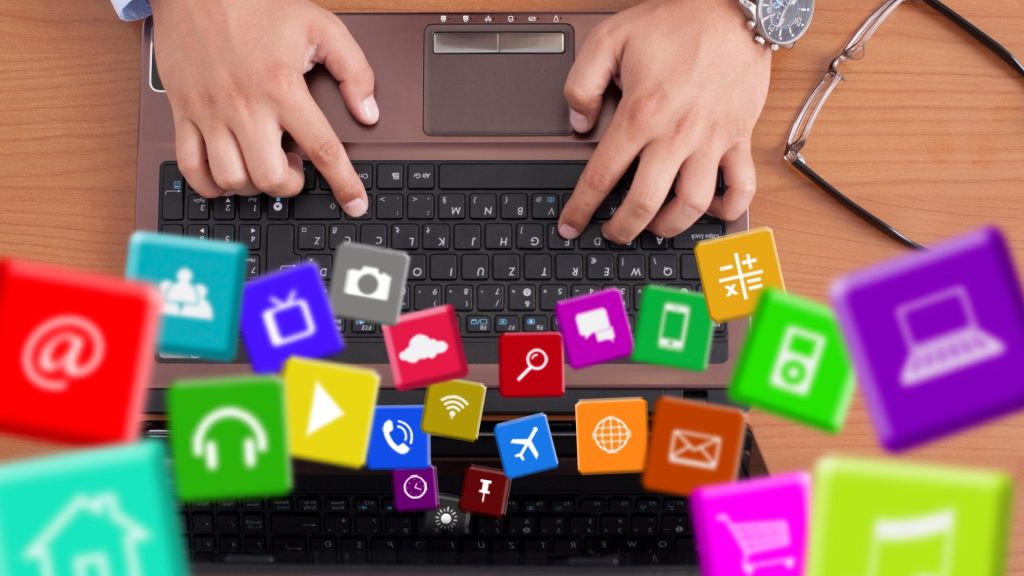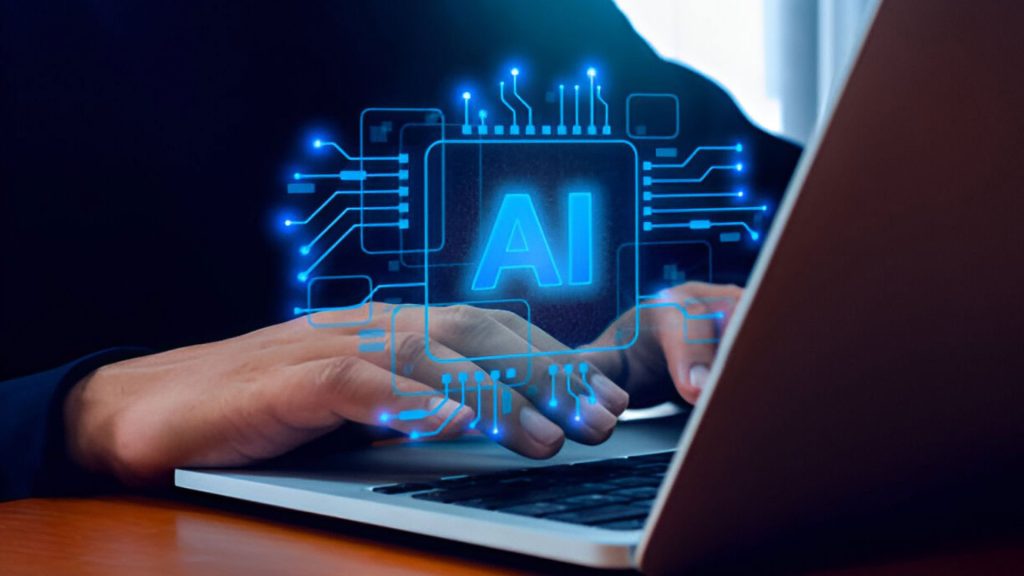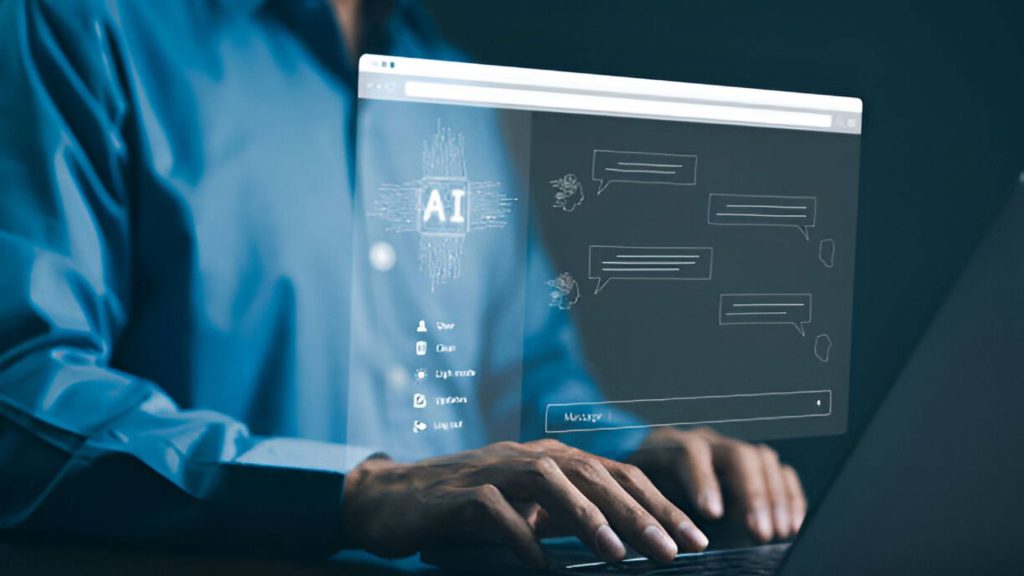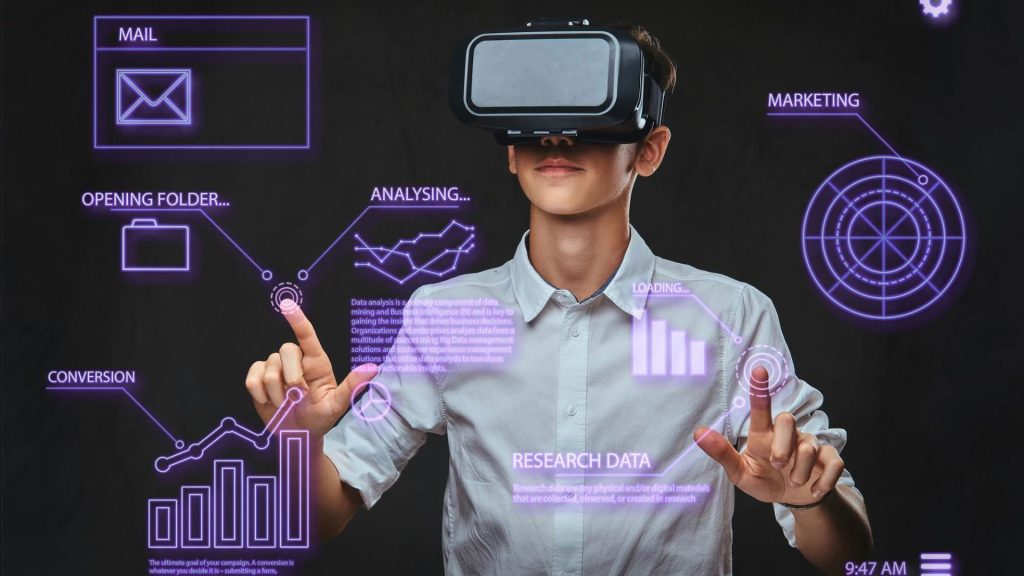The Best Free & Paid Tools Directory 2025 – AI Hubs
Most Popular Blogs
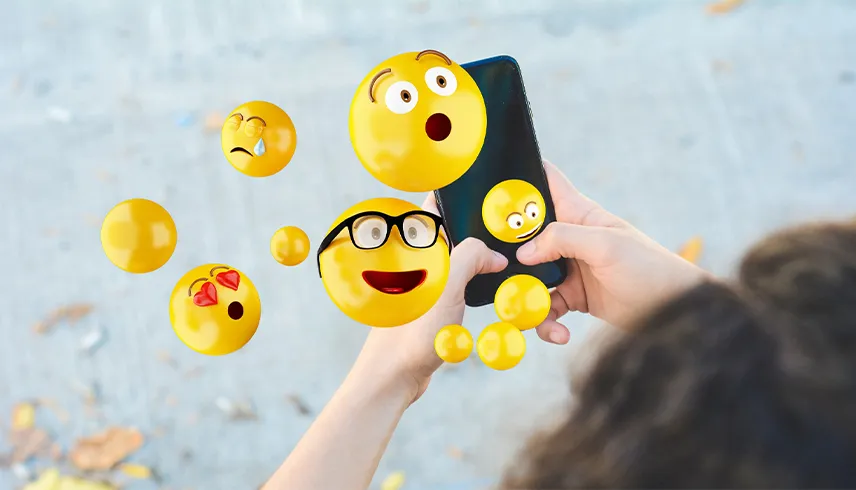
May 2025
The Role of AI Emoji Generator in Modern Day
Nowadays, emojis have gone beyond their smiley faces and have become the main components of our communication. They give us the message of emotions and the whole tone of what we communicate, and they also give us information in the context of the message. The introduction of AI emoji generators into the picture is the next phase of this revolution we are experiencing, which would effectively picture our personality with an emoji set that is quite fixed. The Evolution of Digital Expression With the creation of the first emoji by Japanese designer Shigetaka Kurita in 1999, the way people communicate on the internet has made a huge turn around. At first, it is a catalog of 176 simple 12×12 pixel images that has grown into a worldwide phenomenon with emoji being the most used in the billions of items every day on platforms that are standardized. Using traditional emojis has some inherent problems other than the one we all know about. Modern communication tools do not only allow people to express a wider range of emotions, but also to share ideas that are commonly grasped universally. They don't even come close to providing the full emotional spectrum of obviously generic human emotions. Stepping in, we have AI emoji generators—software which takes use of artificial intelligence resources to yield personal emoticons that determine individual likings, appearances, and emotional stances with record accuracy. How AI Emoji Generators Work? AI emoji generators employ a number of advanced technologies: Computer Vision: Examines user photos to recognize facial features, expressions, and traits Machine Learning: Learns from massive collections of faces, expressions, and artistic styles to create realistic depictions Style Transfer Algorithms: Enforce varied artistic treatments while preserving recognisable features Generative Adversarial Networks (GANs): Generate new, original emoji variations that don't currently exist in conventional sets The users generally upload a picture or enter descriptions, and in a matter of seconds, the AI generates personalized emoji choices that can be refined further with feedback and readjustments. The Growing Cultural Impact AI emoji generators are changing digital communication in some meaningful ways: Personal Identity and Representation AI, emoji generators, are reported to be capable of addressing a problem that the long-standing one of complete digital communication representation has never been removed. Indeed, the case of emoji sets becoming more inclusive is noticeable by their significant progress made in diversifying the choices of skin color, gender, and even nationality—but in this research, there is still no interface materialized that could possibly design the emojis that will be exact replicas of every person's hi-like ink and mien. For instance, AI-generated emojis can help individuals to create and use avatars that resemble them in their online communication and reflect their cultural identity, personal aesthetics, and physical attributes. The digital democratization of representation is especially important to those people that are usually missing from technology. Improved Emotional Communication It is an interesting point raised in several research that most of the communication we have is written and therefore is no nonverbal signals as done in real life. Standardized emojis are indeed helpful when it comes to adding the missing parts, but now, with AI-powered emojis, these matters are on a completely different level. They are able to identify small emotional states and gestures that are particular to a person e.g. The telltale smirk which is directly recognized by a person's friends when a person finds the situation funny, eyebrow raising to indicate special meanings between friends, or the little tones that are relative to the standardized tables that are invisible from them. Brand and Marketing Uses For companies, AI emoji makers provide powerful new means of engaging audiences: Personalizable brand mascots that may convey various emotions Tailored marketing messages where the customers recognize themselves in the brand's messages More interaction through branded emoji sets Employee avatars that look professional while infusing personality into work communications Issues and Challenges While they have advantages, AI emoji makers pose important issues: Privacy Issues Most AI emoji makers need access to personal photos or information in order to produce a correct representation. This has implications about how this biometric information is stored, utilized, and secured—particularly as these services become more popular and potentially lucrative to data brokers. Deepfake Potential The technology that produces fun personalized emojis is based on the same principles as deepfake technology. With increased sophistication and prevalence of such tools, there could be increased misuse in developing deceptive likenesses of people without permission. Digital Divide Availability of AI emoji technology could be restricted by device specifications, availability of an internet connection, and technical expertise—possibly leading to another area of digital inequality. The Future of AI Emoji Generation In the future, various developments are likely to occur: Increased Integration: AI emoji generation being integrated as a standard feature in messaging apps and social media sites Emotional Intelligence: Emoji systems with the ability to provide suitable emojis based on message content and relationship context AR/VR Applications: 3D animated AI emojis that are used in virtual and augmented reality environments Cultural Preservation: Utilization of AI to design emoji sets for endangered languages and cultural practices Conclusion AI emoji makers are no longer technological tricks, but are still part of the ongoing development of human communication. As we are more inclined to use digital media, along with various technologies, they are the ones helping keep the fullness and unique features of human expression that are most often lost out of the more simple systems. The friendliness they enthuse provides the virtual world where people can better depict themselves as they are without a lie, thus they may be able to reach higher levels of understanding and connection also through digital ways. Even though privacy and misuse worries do not go away, these AI emoji creators in the long run give the users more control over their digital identities.
Top AI Tools for Automating Daily Business Operations
Most businesses are now aiming for improved efficiency and competitiveness, of which the use of AI tools is one of the means to achieve business process automation. AI's efficiency-gaining power in business lies in the reduction of labour costs and value that would go into every decision, thus leading to more efficiency and cost-saving. Since AI-driven business solutions abound with a myriad of automation, companies can automate everything from support by customers to analyzing data and managing projects. Here are the top AI tools that will help you automate your daily business operations and increase productivity. 1. AI-Powered Chatbots for Customer Support The most widely used business automation tool in modern times is AI chatbots, particularly for customer support. Using NLP and machine learning, these chatbots understand and correspond appropriately to the customer's query in real-time. In this way, companies ensure that the customer gets timely answers to his or her questions while human agents are kept busy with complex queries by automating customer support. Recommended tools: Intercom: It is a customer messaging platform with an AI-powered chatbot that automates your customer interactions and helps solve the most common issues. Drift: It is an AI chatbot tool that enables conversation marketing and sales and qualifying leads. 2. AI Tools for Email Automation The only thing that no business finds easy is to manage and control their emails. An AI-powered tool of email automation would help you automate the sorting and responding function for your emails along with the overall email organization, and sending targeted campaigns. They actually operate based on machine learning, which categorizes and prioritizes all received emails according to their urgency. Recommended Tools: Mailchimp: It is a type of AI-powered Email Marketing Tool that helps businesses create data-driven and engagement-based personalized email campaigns with customers. SaneBox: An AI email filtering tool that automatically organizes your inbox by filtering less important emails, making it easier to concentrate on the ones that matter. 3. Automated Project Management Tools Management of projects is very tiresome, especially when several team members are involved in the project. The automated project management tools make use of AI for business in such a way that the work on task assignment, tracking, and reporting about projects is done in a much easier manner, thus meeting deadlines and keeping track of them. In general, these tools can free up so much precious time for the team members from doing repetitive functions such as sending reminders or updating project status. Recommended Tools: Asana: With AI features like automatic prioritizing of tasks and deadline recommendations, Asana seems to give teams more effective management of a project. Trello: Butler is the automation tool of Trello. It manages the workflow within a Trello board to streamline task management. 4. AI Solutions for Data Analysis Thus, data analytics comes to be a necessity in making proper business decisions. AI-based tools will further support the process of streamlined automation of gathering, processing, and reporting of such data in an orderly manner that raw data turns into action usable insights. Thus, without spending hours in manually analyzing data, businesses can now make smarter decisions and seek competitive advantage using AI solutions for analytics. Recommended Tools : Tableau is a sophisticated software tool in data visualization that uses AI to help businesses understand and extract insights from their data. Power BI is an analytics tool developed by Microsoft that uses artificial intelligence to automate data processing, visualization, and prediction. 5. AI Tools for Social Media Management Business automation can indeed increase efficiency in social media management. AI tools can automate the following social media tasks: scheduling posts, monitoring brand mentions, and analyzing metrics of engagement. This leads to maintaining a consistent social media presence while optimizing content for better performance. Recommended toolset: Hootsuite: Hootsuite's artificial intelligence offers business clients the ability to put together the scheduling of social media and monitoring of engagement across platforms. Buffer: The application of AI here is in suggesting the best posting times but also analyzing performance on social media. It means that businesses will now be apt to fine-tune their content strategy. 6. AI-Powered Financial Tools Bookkeeping and financial management are crucial for every business, yet boring at the same time. AI-powered financial tools can automate tasks like invoicing, expense tracking, or payroll processing, thereby making it easier for companies to handle their finances without human error. Recommended Tools: QuickBooks: Bookkeeping software powered by AI, that automates bookkeeping activities, tracks expenditures, and builds financial reports. Xero: To Xero, one would be able to use AI in automating such things as invoicing, bank reconciliation, and financial reporting so as to ease the running of such business processes in finances. 7. AI Tools for Human Resources With artificial intelligence, most types of tasks, such as recruitment, employee onboarding, and performance evaluation, could be automated, thus making it a very innovative tool for any HR department by saving time for HR teams to be deployed in highly strategic initiatives. Recommended Tools: BambooHR: It is an HR software using AI to automate the most basic tasks, such as onboarding employees, managing leaves, and performance tracking. Workday: Workday provides a layer of AI capabilities to automate routine HR tasks that include recruitment, payroll management, and analysis for the performance of employees. 8. Voice Assistants for Productivity Voice assistants now add value to the business, allowing companies to increase productivity. One of the ways it can increase productivity is by scheduling meetings or sending reminders of common tasks, automatically emailing and completing other such mundane chores with minimal help from staff members. Recommended Tools: Google Assistant: This is a digital assistant from Google that can care for duties such as setting appointments, emailing, and reminding you of future events. Amazon Alexa: Alexa helps automate the task at hand-for example, setting up to-do lists, reminding them of the activities that need to be done, and integrating with other business tools that make the workflow more streamlined. 9. Automated Marketing Tools Most importantly, marketing can take on numerous cyclical actions, from running ad campaigns to understanding customer behaviour. AI marketing tools are important in the automation of digital marketing, aspects such as ad placement, targeting audience, and content personalization. This leads to more effective marketing campaigns with less manual intervention. Recommended Tools: HubSpot: A fully AI-driven marketing platform that can automate lead nurturing, email marketing, and social posting. Marketo: It makes full use of AI to personalize campaigns, automate email sequences, and analyze the performance of your campaign. 10. AI Tools for E-commerce E-commerce businesses can significantly automate tasks such as inventory management, customer service, and personalized product recommendations through AI solutions. AI tools also help predict which products are likely to be sold much better managing stock levels and even automating the reordering process. Suggested Tools: Shopify's Kit: Shopify’s Kit is an AI-powered virtual assistant for the automation of variety tasks within an e-commerce business, including the running of Facebook ads, email marketing, and retargeting campaigns. Nosto: Nosto applies artificial intelligence in the automation of product recommendations, personalized emails, and on-site pop-ups that help in improving the conversion. 11. AI Solutions for Document Management Documents play a major role in any business organization. AI for business can be a significant enabler in automating the processes of storage, organization, and retrieval of documents. Thanks to AI-based tools, companies can decrease the consumption of paper, have files more easily organized, and finally locate documents quickly. Recommended Tools: DocuSign: is among the tools that utilize AI for contract automation signing, sending, and storage. M-Files: An AI-driven platform that automatically categorizes documents according to their content, enabling businesses to organize and access them properly. 12. AI Tools for Time Management In fact, time management increases productivity and AI helps streamline the schedule, monitor the time spent on specific things, and automate reminders for when deadlines are due. These help employees stay focused and ensure the timely completion of deadlines. Recommended Tools: RescueTime- This is a type of AI-powered time management tool that tracks all the activities marks your time spent on them and gives it insights so one can make improvements in productivity. Clockify: This uses AI in automatic time tracking and reports, thus allowing businesses to track where their time is being spent. Conclusion Developing AI to integrate into day-to-day business activities helps in working at maximum efficiency, saves time, and cuts costs drastically. From the automation of a series of business activities, such as sending out marketing campaigns to the management of projects, enhancing data analysis, and proper assistance to customers, AI solutions can be the game changer for the company. Bringing on board AI for business will smooth things out and empower teams with more strategic issues to focus on, leveraging business towards growth in all sectors. The right combination of AI tools can bring business automation to a new level of productivity and success for the company. Begin exploring AI solutions that fit your specific business needs and take that first step toward a smarter, more automated future.
The Impact of AI Text Generator Tools on SEO and Digital Marketing
Visualize composing one thousand words within minutes. Next, visualize checking that Google is reading them. Is that your dream or your nightmare? The answer might be AI that you think of. Yes, it can automate thousands of time-consuming tasks, for example keyword research, content outlining, and also drafting some initial content. This allows marketers to focus on strategic initiatives. AI text generation tools have amazingly changed the ways in which marketers and SEO professionals create content. These intricate tools profoundly alter the way businesses tackle content development, keyword optimization, and digital marketing efficiency in general. What do you think about the impact of AI text generator tools on SEO and digital marketing? How AI Text Generator Tools Are Changing Content Creation AI writing tools use natural language processing and machine learning to generate human-sounding text from rudimentary instructions. The technology has made the leap from simple sentence completion to prompt-based generating of perfectly coherent, context-specific information in less than a generation. Digital marketers find these tools helpful with several primary issues: Content scaling: Generating high volumes of quality content without a corresponding boost in resources Consistency: Preserving brand voice across channels and content items Ideation: Breaking through creative barriers and creating new content ideas Optimisation: Developing search engine-optimized content that balances search engine needs with reader interest. SEO Implications of AI-Generated Content The relationship between AI text generators and SEO is nuanced and evolving: Positive SEO Impact AI tools can help with optimising content by: Developing content that is topically thorough in terms of semantic connections between keywords Provide appropriate LSI (Latent Semantic Indexing) keywords to add in the context of the topic you are writing. Assisting with optimising content length and readability factors Facilitating quicker creation of timely content based on topical trends Aiding in generating meta description and title tags E-E-A-T Considerations for AI-Generated Content Google's E-E-A-T guidelines (Experience, Expertise, Authoritativeness, Trustworthiness) have significant implications for AI-generated content: Experience: According to the new rules at Google, in order to rate the relevant content, one must have actual experience with that. Provided that machines are not capable of real experience, human basic experiences have to be included in AI-generated content. For example, in the case of AI tools for content creation, write drafts accompanied by real user reviews or case studies. Expertise: The content should convey expertise in the subject matter. Although AI can integrate information, it cannot substitute for the depth of knowledge of industry experts. According to Google's Search Quality Evaluator Guidelines, content should demonstrate specialized knowledge and skills. Authoritativeness: Backlinks from highly reputed sources and proper attribution help establish authority. As Moz's guide on E-E-A-T explains, publishers using AI should maintain transparent authorship practices and highlight the credentials of human editors who manage the content. Trustworthiness: The most important things that should be kept in mind are content accuracy, the use of AI in a transparent way and the correct use of facts. The Content Marketing Institute recommends that we should go through very rigorous fact-checking processes in order to develop content generated by AI that can be completely trusted. Not optimising these E-E-A-T factors significantly impacts rankings even when the content is otherwise greatly optimised. Other Potential Challenges AI detection tools are always advancing, which could make mere AI-generated texts easily detectable for them such as OpenAI's AI classifier. A content of no originality (non-original content) can often not get the recognition it deserves in terms of shares and backlinks on social media. Over-optimization caused by AI can result in spam filters being triggered when applied without human intervention. The new updates of the algorithm are more of differentiating valuable human-generated content than that of solely AI generated content. Best Practices for Using AI Text Generator Tools in Digital Marketing To maximise the benefits while mitigating risks: Use AI as a collaborator: Use AI for first drafts, outlines, and research help instead of posting unedited AI content Add human expertise: Include distinctive insights, case studies, and industry-specific knowledge Custom outputs: Modify AI-created content to suit brand tone and audience taste Value-add focus: Make content relevant to user needs or queries beyond mere keyword targeting Ensure quality control: Adopt editorial procedures to ensure factual correctness and logical coherence Popular AI Text Generator Tools in the Market The Trend of AI writing tools continues to expand, with options catering to various needs: Comprehensive AI Writing Platforms GPT-based solutions that can generate blog posts, marketing copy, and social media content Specialised tools focusing on particular content types like product descriptions or email marketing You can explore various AI text generator options to find the one that best suits your content needs and budget constraints. SEO-Focused AI Tools Solutions that combine content generation with keyword analysis and optimisation suggestions Tools that help identify content gaps and topic opportunities For businesses looking to implement a comprehensive AI content strategy, AIHubs' AI content creation guide provides valuable insights on building an effective workflow. Effective Internal Linking Strategy with AI-Generated Content Internal linking continues to be a significant SEO aspect, even with AI text generators. When using AI-supported content development: Develop content clusters for target topics before actually writing content Check that artificial intelligence tools can understand the structure of your site to enhance and make the best of their internal linking potential Evaluate and refine internal links to create useful concept connections Utilize recently released content optimization features from AIHubs to find multiple internal link opportunities from your existing content Internal links must naturally occur within the content and not seem artificial or non-relevant to the reader. The Future of AI Text Generators in Digital Marketing Looking forward, some trends are on the rise: More developed audience segment-based content personalization Better language variety for the "personalization of international marketing" through advanced technology Integrated content management system and marketing workflow have undergone significant development to enhance integration Analytics were improved to the nth degree to enable the performance evaluation of AI content HubSpot's State of Marketing Report shows that 58% of marketers are applying AI to content strategy, which is projected to increase in the next few years. Conclusion The new AI text generation tools have a huge impact on the digital marketing and SEO strategies. However, they deliver great efficiency and scaling benefits, the most successful methods combine the technical capability of the machine with the human creativity and knowledge. Companies that are able to achieve the harmony between these can employ AI almost as good as the best in their content strategy. Meanwhile, the content will continue to be genuine and useful to both search engines and the audience. AI Hub's beginner guide to AI writing is an implementing strategy guide not only retaining the content quality but also keeping search engine optimization performance intact, which will certainly be of use as a result of this task. By regarding AI as a supplement to human intellect rather than its substitute, the professionals can utilize the capabilities of such technologies in the creation of stronger and more engaging and optimized content while at the same time focusing on their strategic and creative capability.
The Future of AI in Digital Marketing: Top Tools to Use
The future of digital marketing is not always at a standstill, and AI is one of the significant spearheads of such changes. Tools built with AI are modernizing the business approach to marketing. It is much more about how business can be automated, personalized, and infused with real-time data-driven insight. In this article, we will discuss the future of AI in digital marketing and report some of the best tools you can use to stay ahead of the curve. Introduction: How AI is Influencing Digital Marketing From a buzzword in digital marketing, AI has moved on to become one of the most valuable tools for business companies to accurately reach out to their customers, create tailor-made content, and run campaigns in ways previously unimaginable. Marketers can analyze large data volumes using AI and make better decisions based on data to maximize the efficiency of campaigns. Understanding the Role of AI in Modern Marketing: With the modern business, artificial intelligence has really changed the way customers get engaged with businesses. From automating routine and mundane tasks to personalized recommendations, AI enables marketers to reach audiences on much deeper levels than ever. Let's take a little more detailed look at how AI has transformed the role it plays in digital marketing and why it's becoming so indispensable. Evolution of AI in Digital Marketing The early days of AI deployment primarily included Marketing automation, such as sending out emails and auto- uploading posts to social media. With the latest evolution of technology, AI has been further developed to understand consumer behavior, create predictive models, and adjust the marketing strategy in real time. Today, AI tools can come up with very highly customized marketing experiences based on individual preferences. Why AI is Critical for Success in Digital Marketing? AI brings several advantages to digital marketing. This would enable marketers to process and analyze large amounts of data in a streamlined manner, predict modeling of what might happen among customers, and better personalize the efforts and bring the right message to the right audience at the right time. In the absence of AI, it becomes impossible to continue as competitive in the digital marketplace. AI-Powered Marketing Tools You Ought To Know Now that we are on the same page regarding why the world of digital marketing needs AI more and more, it's high time to discuss concrete AI-powered tools that have already revamped marketing. From content creation to engagement with customers, these tools become a must-have tool for any modern digital marketer. Artificial Intelligence in the Content and Strategy Creation Content is still the king, but AI makes it easier than ever to be able to create extremely engaging content that speaks well with your target audience. AI enables marketers to do data-driven content strategies, analyzing user behavior and interests. AI-powered writing assistants can also generate blog posts, articles, and even social media captions in a fraction of what used to take. Top AI Content Generation Tools Jasper (formerly Jarvis), Copy.ai, and Writesonic are at the forefront of AI content generation. What these platforms do is employ natural language processing for marketers to create very high-quality content in few minutes. Even with AI, there can be ideation; you can even draft an entire article, and, on occasion, even optimize the content for SEO sometimes. AI in the Targeting and Personalization of Customers This is one of the most spectacular ways in which artificial intelligence is used in digital marketing: the ability to personalize experiences for unique users. AI algorithms scan user data to generate extremely targeted campaigns based on preferences, past behaviors, and real-time interactions. Thus, personalization increases engagement and converts users. AI-Driven Personalization Tools HubSpot, Dynamic Yield, and Personyze are AI-driven personalization tools that can be used to give a business the edge in delivering a personalized experience across multiple channels. Tools that have that utilize machine learning to suggest appropriate content to customers based on identified customer segments. AI in Social Media Marketing. Social media sites churn out a large amount of data, and AI is just the right instrument to make sense of all that can be churned out. AI tools for social media management enable marketers to analyze trends, enhance posts for engagement, and even automate responses to customer queries. AI-based best social media management tools Hootsuite, Buffer, Sprout Social, etc. using AI are providing smart scheduling, engagement analytics and social listening. This is the reason marketer can make use of AI to alter their strategy for social media and therefore content reaches the right audience at the appropriate time. AI and Chatbots in Customer Engagement The tide is shifting and customer service is being revolutionized by AI-based chatbots in terms of round-the-clock availability with personal engagement in dealing with issues related to answers to frequently asked questions, ideas for purchase decisions, and product suggestions according to the user's preferences-all in real-time activity. AI Chatbot Tools Revolutionize Digital Marketing The popular chatbot platforms, such as Drift, Tidio, and MobileMonkey, are at the forefront of AI -powered customer engagement. Tools such as these help businesses engage with their customers in meaningful ways, improving overall satisfaction in terms of conversion. Benefits of Implementing AI in Digital Marketing The key advantages of adopting AI in digital marketing are the improvement of customer experience as well as data-based decision-making. Some of the benefits are: Improved Customer Experience AI allows marketers to present content that is more relevant and targeted to a user for a hassle-free customer experience. Using the predictability of what a customer wants and needs, AI creates real-time suggestions for better satisfaction and loyalty. Improved Data-Driven Marketing Decision Making with AI The high processing power of AI enables marketers to actually take real-time decisions based on actual insights. Analysis of consumer trends, monitoring the campaign's effectiveness, and adjusting one's strategy accordingly are made much simpler by AI tools. Increased Efficiency and Productivity with AI With AI content creation, scheduling of AI campaigns, and data analysis would be all part of an integrated package, thereby making more room for creative and strategic activities. This, in turn, would result in better achievements within a less amount of time. Challenges and Limitations of AI in Marketing. Indeed, although AI emerges to present a multiplicity of benefits, it also comes with the challenges and imperfections that must be understood by marketers if they are to use them effectively. Data Privacy and Ethical Concerns Since AI will handle big data about customers, there is a rise of privacy issues as well as ethical questions associated with the treatment of personal information. It is thus important to ensure the proper balance with privacy so that personalization strikes the right cord to build customer trust. Dependence of Quality Data Bad data is as good as AI. Bad or incomplete data may result in weak predictions, and strategies would not work as they were designed. Therefore, for maximum outcome in the utilization of such tools, high-quality complete datasets must be ensured. Future of AI in Digital Marketing Expectations: As technology develops further, the use of AI in digital marketing will also be more advanced. Expectations : Advanced Predictive Analytics and Marketing Automation. AI will even strengthen predictive analytics capabilities, enabling marketers to make better estimates of customer behavior and preferences. Automaton will streamline the workflows within campaigns, creation, and customer support services. AI in Omnichannel Marketing AI will enable seamless connectivity to a consistent and personalized multichannel experience. No matter whether it is a website, app, social media, or email customer engagement, the seamless journey will be encountered by customers everywhere they interact with a brand. Conclusion Be a Part of the Revolution in AI Digital Marketing\\AI is no longer a hype; it is an integral part of the digital marketing paradigm. It helps unlock new levels of efficiency, personalization, and customer engagement by using AI tools and levers. As AI continues to evolve, so will the opportunities for marketers. Those embracing AI-driven solutions will be best placed for success against their competition and deliver great marketing experiences.


